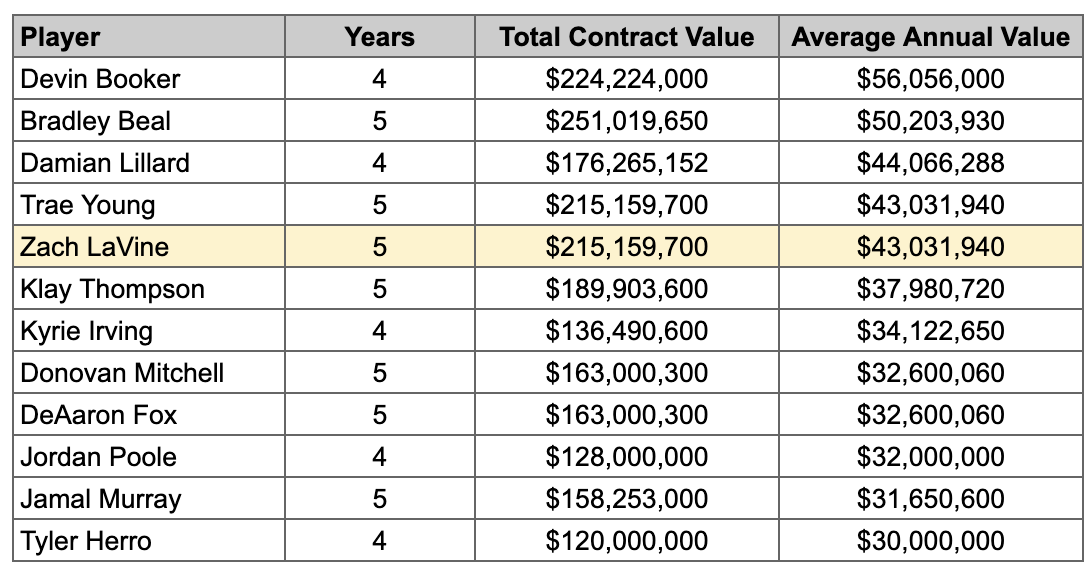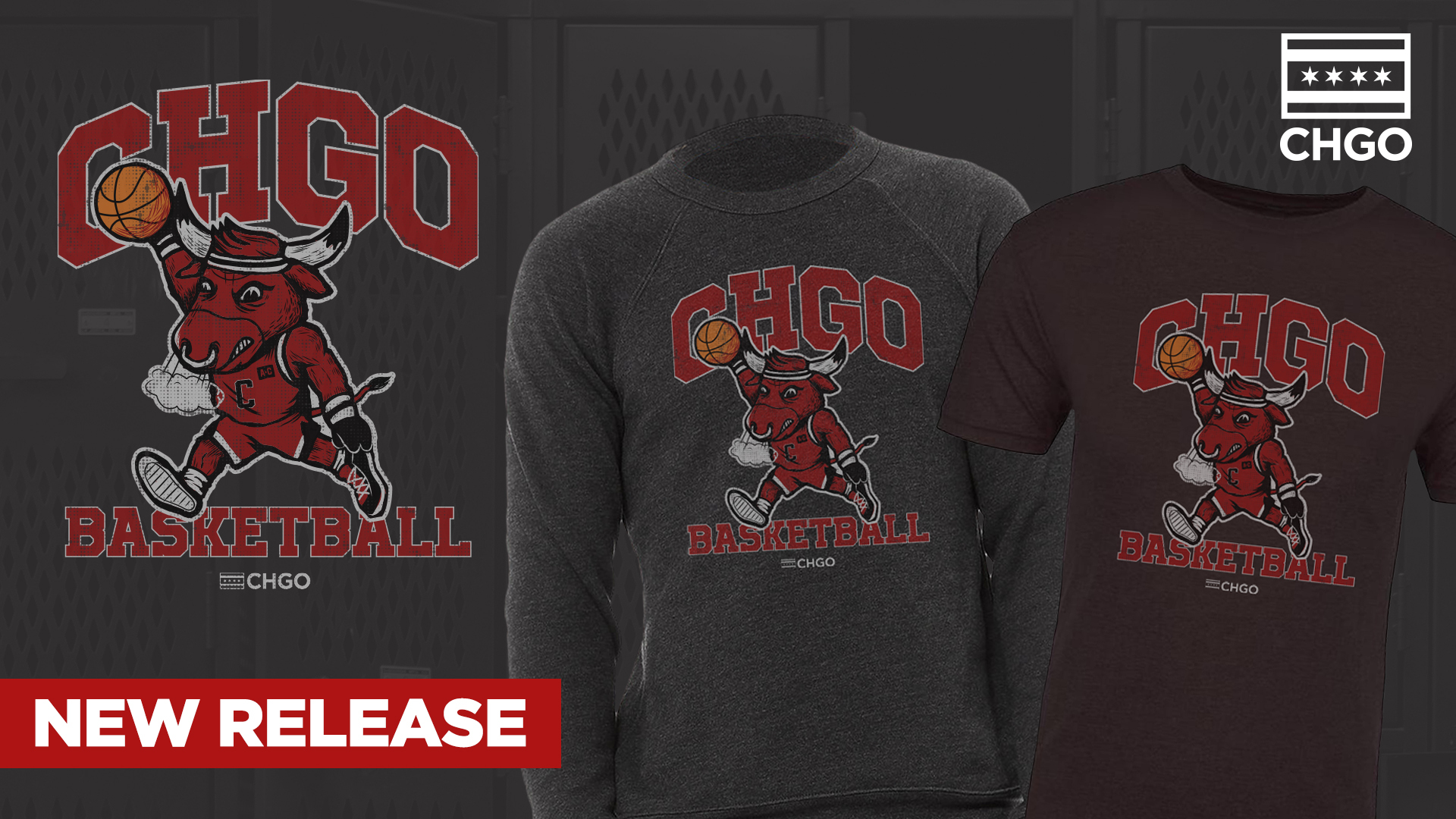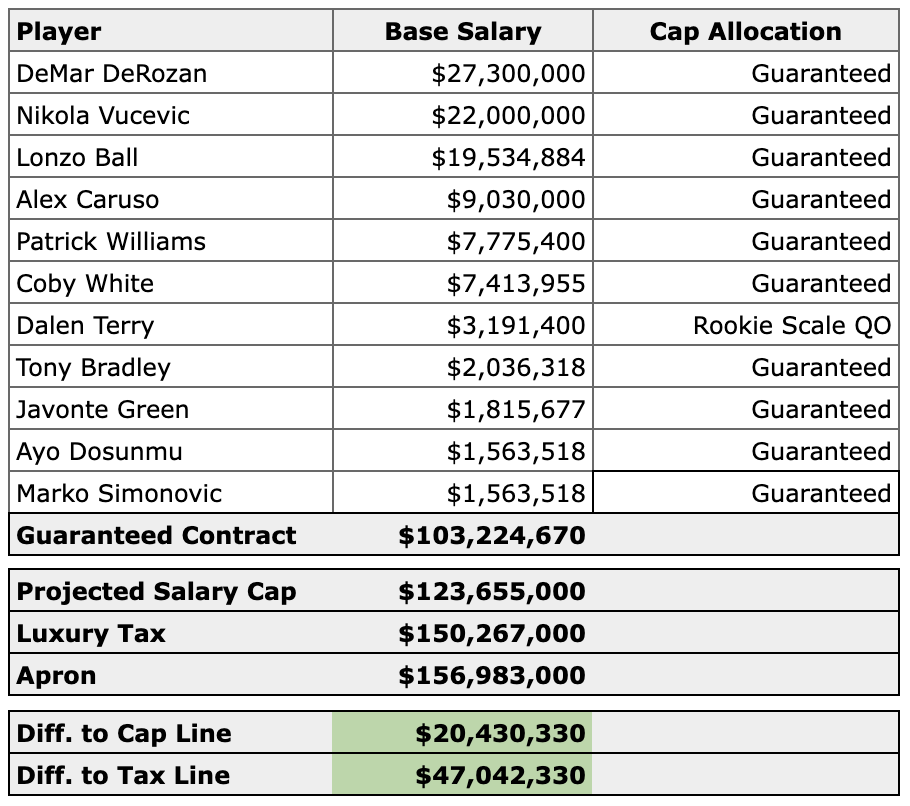© 2026 ALLCITY Network Inc.
All rights reserved.

It’s certainly been an eventful few days for the Chicago Bulls.
The performance on the floor has deteriorated. The team has stumbled down the standings. And now, it appears that players are turning on each other.
Well, on one player, at least.
Zach LaVine is at the forefront of internal complaints, according to reports from Shams Charania and Darnell Mayberry of The Athletic and K.C. Johnson of NBC Sports Chicago.
After losing 7 of their last 10 games, it’s hardly a surprise that cracks have emerged. That LaVine is the primary focus isn’t shocking, either.
After signing a five-year, $215 million deal during the offseason, heightened attention and scrutiny was always headed LaVine’s way. His less-than-stellar play this season has amplified matters.
It’s an emotive time for LaVine, the Bulls, and its fan base — the latter of which continues to argue over the decision made in bringing back LaVine during free agency.
Several months after the fact, it made sense to take stock and break down if the decision to re-up with LaVine was the correct one.
Were the Bulls right to re-sign Zach LaVine?
Full disclosure: I vehemently endorsed for LaVine to be handed a max contract.
Do I still believe giving LaVine a max deal during free agency was the right decision?
Absolutely.
Hindsight is a valuable tool, but based on the information available before-and-up-to free agency, giving LaVine the richest deal in franchise history was the correct call.
Here’s why:
- In his previous three seasons, LaVine averaged 25.7 points, 4.5 assists and 4.8 rebounds
- His scoring efficiency was through the roof: 53.3 percent on 2-pointers, 39.6 percent from three, 83.5 percent from the free throw line, 60.2 true-shooting percentage
- Two consecutive All-Star selections
- Gold Medal recipient as a member of Team USA at the 2020 Tokyo Olympics
In addition to the above, we need to consider free agency market dynamics. Here’s a list of score-first guards, their respective salaries, and where LaVine compares to his contemporaries:

After reviewing the above list, the following should be clear: Regardless if a player isn’t a superstar, a first option on a contender, or one of the 15 best players in the league, offensive guards who efficiently score on high volume get paid. With this in mind, LaVine earned the full bag. That may not align with your own ideals as to who is worthy of such lucrative contracts. Unfortunately, our opinions on players have no bearing on NBA economics.
Furthermore, given LaVine’s status as an unrestricted free agent, he and his representatives, Klutch Sports Group, had all the power during contract negotiations. The Bulls knew this. There was no room for haggling on price. Their player wasn’t going to accept anything less. Nor should he. And so LaVine and the Bulls arrived where they did: an agreement on a 5-year, $215 million contract.

Did the Bulls have alternative scenarios beyond LaVine?
Yes.
As his critics routinely noted, the Bulls could’ve let LaVine walk in free agency. In doing so, the Reinsdorfs would’ve saved $200 million in guaranteed money. Good for them and their billion-dollar portfolio.
Beyond the money, by letting LaVine freely join another team, it means being comfortable with allowing a star-level player to leave for nothing. From that standpoint, this solution never made any sense and, frankly, it would be a failure in asset management.
Due to his unrestricted free agent status, sign-and-trade scenarios were near-on impossible. As such, the Bulls had no real ability to control sign-and-trade outcomes. Certainly not to the same effect in which they did the previous offseason with Lauri Markkanen, who was sent to Cleveland.
Only two reasonable scenarios were in play: pay and retain LaVine or let him walk away for nothing.
Assuming the former scenario played out, the Bulls did not have the tools to replace LaVine. Accounting for guaranteed contracts owed to its players prior to free agency, had the Bulls opted to let LaVine walk and, instead, look to use cap space to sign alternative options, the team would, at most, create $20.4m in cap space (see below):

The above scenario doesn’t account for several key conditions: mandatory cap charges for open roster spots, as well the contracts given to Andre Drummond, Derrick Jones Jr., and Goran Dragic. Assuming the Bulls follow through with their free agent additions, the reality is the Bulls wouldn’t actually have $20.4m in cap space (this figure would be closer to $10m, depending on the players signed).
In effect, without LaVine, the Bulls had little means to fill the starting shooting guard spot. More importantly, what does it say about the strategy moving forward if the Bulls casually let an All-Star caliber talent leave their franchise? What message does it send to incumbent stars DeMar DeRozan and Nikola Vučević? What was the point in trading for these two players if the plan all along was to jettison LaVine, with no viable option to replace him?
In choosing not to keep LaVine, without any notable means to add to roster, the Bulls would be in a worse position than they already are. This opportunity cost is rarely mentioned, but it’s critical to understanding the actions taken by the Bulls’ front office.
Should things continue to nose dive, by re-signing LaVine, the Bulls have the ability to trade their star guard via trade and recoup value — an option that doesn’t exist if the team had watched him sign a deal elsewhere.
Whatever possible value they receive in such a deal, be it young prospects, readymade veterans, future draft concessions or a combination of all, such a package was only possible by making a long-term commitment to LaVine.
In that sense, the Bulls created an opportunity to wrestle back some leverage with its star guard, whilst keeping its core intact.
Has LaVine played up to the level of his new deal?
Nope. Not even close.
Through 30 games, LaVine hasn’t been the player that earned his pay bump. His basic box score numbers have regressed, as have his scoring efficiency numbers. On the floor, his decision-making and defensive rotations — all of which have been problematic in the past — have been notably worse this season.
Most will agree that LaVine needs to be better than he has to justify his contract. However, that reality doesn’t mean previous decisions were bad and wrong at the time they were made.
Furthermore, there’s still time for the narrative to change. Sure, his production-to-contract value isn’t favorable at this moment in time. There’s also plenty of basketball still to be played. Can we wait a little longer before declaring this transaction an unmitigated disaster?
Should LaVine inch closer to the level of play he provided in his previous three seasons, his deal will return to fair value. His contract is also fixed in value, meaning, as the salary cap continues to increase over the coming years, as a percentage of the cap, LaVine’s contract will depreciate in value.
Perhaps more importantly, should the Bulls look to blow this team up and start over, LaVine remains a sought-after trade candidate — especially when the current landscape suggests there will be far more buyers than sellers at the trade deadline.
This isn’t a scenario where the Bulls are stuck with LaVine for the next five years without recourse, so let’s not pretend like it is.
Can the Bulls trade LaVine?
At present, no.
LaVine is currently ineligible to be traded due to provisions within the Collecting Bargaining Agreement that disallows teams from trading players who re-signed with their incumbent team on a deal that is 120 percent higher in value than their previous agreement.
This restriction is in place until Jan. 15, 2023.
Thereafter this date, the Bulls are free to trade LaVine. As the NBA trade deadline is Feb. 9, 2023, the Bulls do have scope in moving LaVine this season.
Should the Bulls trade LaVine?
Maybe?
Such a decision is entirely dependent on the direction set by Artūras Karnišovas, Marc Eversley and their management team.
Should the loss column continue to take a beating, the Bulls need to start over and rebuild through the draft. If so, then every player, including LaVine, should be made available for draft picks and young prospects.
However, if the plan is to reconfigure the roster and bring in established talent — in a similar fashion which Portland has done so around Damian Lillard — then no, the Bulls shouldn’t feel pressured to move LaVine given his long-term contract and, importantly, his prime years remaining ahead of him.

Get Chicago's Best Sports Content In Your Inbox!Become a smarter Chicago sports fan with the latest game recaps, analysis and exclusive content from CHGO’s writers and podcasters!
Just drop your email below!
Comments
Share your thoughts
Join the conversation



